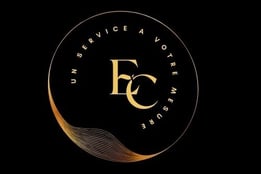SMEs and Marketing Consultants: Collaborating for Sustainable Impact
Discover how a marketing consultant can support SMEs in their corporate social responsibility (CSR) journey, aligning sustainable strategies with business objectives to create a positive impact on both the environment and society
MARKETING
LYDIE GOYENETCHE
12/29/20243 min read


The Role of Marketing Consultants in Driving CSR Initiatives
In a world where businesses face growing expectations regarding sustainability and social responsibility, the role of marketing consultants has become indispensable. These professionals, equipped with both strategic and operational expertise, provide valuable guidance for companies seeking to integrate CSR into their core operations. Their support goes far beyond minor adjustments, aiming instead to transform internal practices, enhance external perception, and address contemporary environmental, social, and economic challenges.
By examining concrete examples of companies that have successfully collaborated with marketing consultants on their CSR initiatives, we can better understand the significance and tangible impact of this support.
Flunch: A Drastic Reduction in Plastic Waste
The case of Flunch serves as a compelling example of how a company can leverage a consultant’s expertise to adopt more sustainable practices. Faced with heavy reliance on single-use plastics, Flunch recognized an opportunity to reduce its environmental footprint. With the guidance of consultants, the company conducted a comprehensive audit of its operational practices to identify key areas for improvement.
This assessment led to the creation of a step-by-step action plan, including the elimination of plastic straws and cutlery in favor of biodegradable alternatives. Additionally, consultants worked to raise awareness among internal teams, fostering a collective commitment to these objectives. The results were impressive: 52 tons of plastic eliminated in just one year, significantly improving the brand’s reputation among eco-conscious consumers. This example highlights the value of a structured, collaborative approach in achieving CSR goals.
Monoprix: Moving from Paper Catalogs to a Digital-First Strategy
In a different context, Monoprix harnessed the expertise of a consultant to tackle both an environmental and financial challenge. The brand had been distributing thousands of paper catalogs annually, incurring substantial costs while leaving a significant ecological footprint.
With the help of a responsible marketing expert, Monoprix assessed the impact of this practice and explored digital alternatives. The company developed a strategy focused on mobile-first solutions, including promotional offers accessible via a dedicated mobile app and targeted email campaigns. This transition eliminated the need for paper catalogs while ensuring customers could still access promotional content efficiently.
To facilitate adoption, the initiative was accompanied by team training, ensuring a smooth shift toward digital practices. The benefits were substantial: 2,400 tons of paper saved annually, a significant reduction in operational costs, and an enhanced brand image among an increasingly eco-conscious consumer base.
Franprix: Turning Cigarette Waste into a Sustainable Solution
Franprix provides a striking example of how small yet targeted actions—when supported by consultants—can yield a major impact. The brand was dealing with the persistent problem of urban pollution caused by discarded cigarette butts outside its stores.
To address this issue, consultants proposed an innovative solution: the installation of designated outdoor ashtrays, allowing cigarette butts to be collected and recycled into street furniture. Beyond reducing visible pollution, this initiative reinforced Franprix’s reputation as a committed advocate for environmental sustainability.
The project not only garnered positive feedback from customers, municipalities, and local residents but also strengthened Franprix’s community ties and lowered street-cleaning costs. This case illustrates how CSR efforts, no matter how small, can generate both environmental and economic benefits.
Les Vignerons de Buzet: Sustainability in the Wine Industry
Les Vignerons de Buzet exemplifies how sustainability can be integrated into agricultural and winemaking practices. Initially, the cooperative was heavily dependent on chemical fertilizers and pesticides, a reliance that threatened both soil quality and biodiversity.
By engaging specialized consultants, Les Vignerons de Buzet embarked on a transition to sustainable agriculture, adopting biodiversity-friendly practices while eliminating harmful chemicals. The initiative was supported by a clear communication strategy, positioning the cooperative as a leader in eco-friendly winemaking.
The impact was swift and measurable: improved local biodiversity, enhanced product quality perception, and greater commercial appeal. This case demonstrates how sustainable transformation in traditional industries can serve as a competitive advantage while fostering environmental responsibility.
Nespresso: From Waste Management to Carbon Offsetting
The example of Nespresso showcases how a seemingly insurmountable problem can be transformed into a sustainable opportunity. The brand, known for its aluminum coffee capsules, faced widespread criticism due to the sheer volume of waste generated.
With the assistance of sustainable marketing consultants, Nespresso developed a comprehensive recycling program for used capsules. The initiative was further strengthened by agroforestry projects in over 25 countries, aimed at offsetting the carbon footprint of coffee production.
This dual strategy—combining recycling efforts with reforestation initiatives—enabled Nespresso to significantly reduce its environmental impact while reinforcing its brand reputation among sustainability-conscious consumers.
Conclusion: Winning Strategies for a Sustainable Future
These case studies demonstrate that the role of marketing consultants in CSR extends far beyond technical adjustments or isolated initiatives. Their strategic expertise enables businesses to align sustainability goals with broader business objectives, ensuring that CSR efforts are not just symbolic gestures but integrated, impactful transformations.
Marketing consultants bring analytical insight, strategic vision, and stakeholder engagement skills, making them key players in the corporate sustainability movement. Their ability to bridge the gap between business needs and responsible practices empowers companies to thrive while respecting both society and the environment.
Ultimately, the success of these initiatives hinges on a shared vision and precise execution—two qualities that marketing consultants excel at delivering.


EUSKAL CONSEIL
9 rue Iguzki alde
64310 ST PEE SUR NIVELLE
FRANCE
0033782505766
euskalconseil@gmail.com

